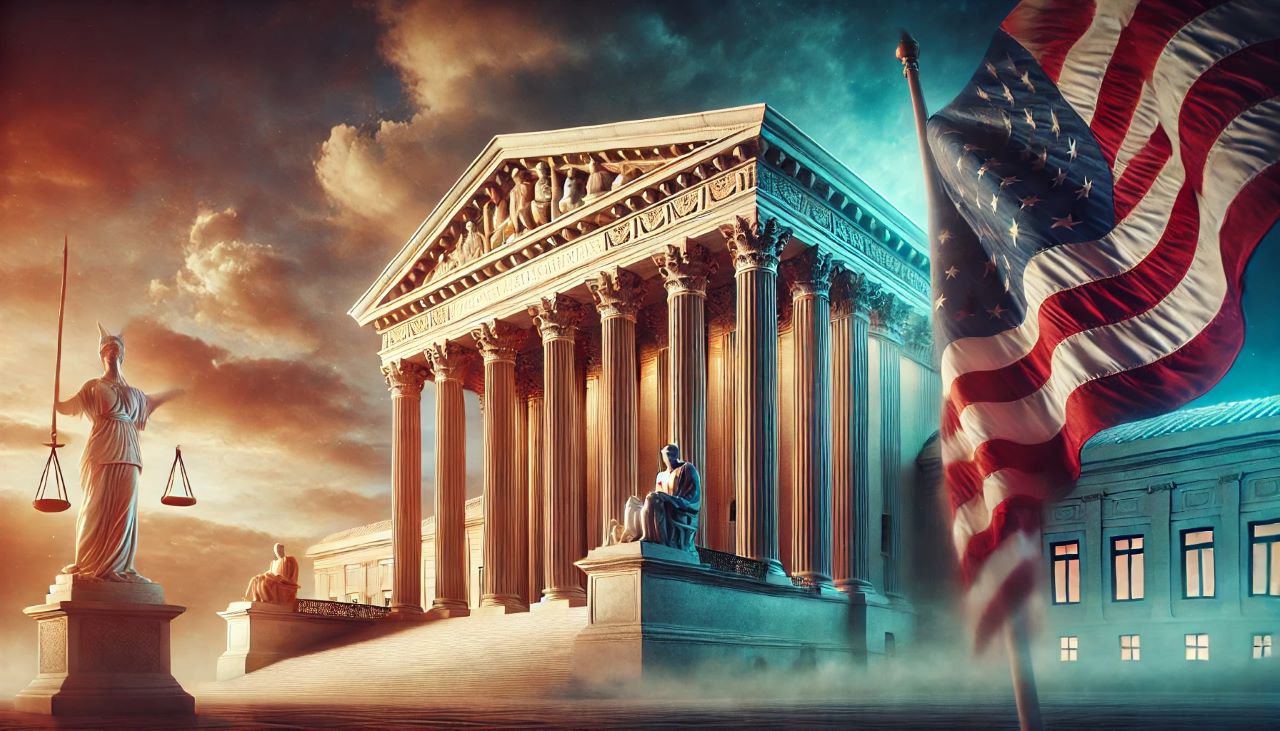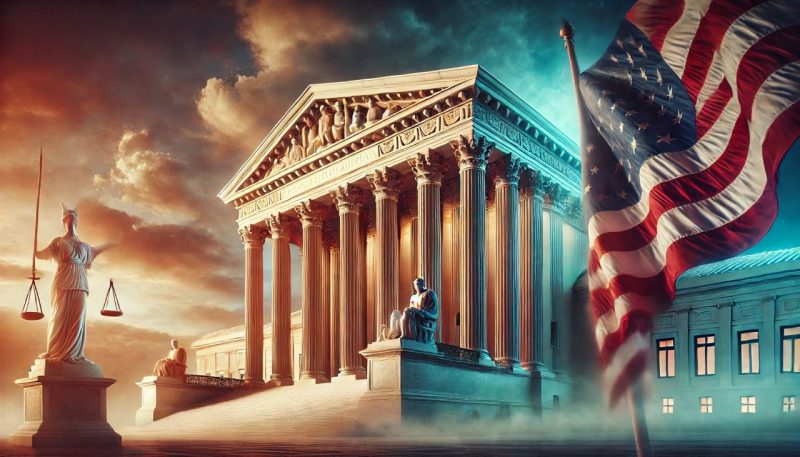

In a landmark decision, the United States Supreme Court has ruled against former President Donald Trump’s appeal to delay his sentencing in the high-profile New York hush money case.
The ruling allows the sentencing to proceed, despite Trump’s impending inauguration as president on January 20, 2025. This decision reinforces the principle that no individual, regardless of status or office, is above the law and emphasizes the judiciary’s dedication to upholding legal accountability even in politically sensitive cases.
The Supreme Court’s Decision
In a 5-4 ruling, Chief Justice John Roberts and Justice Amy Coney Barrett joined the Court’s three liberal justices to deny Trump’s request. The ruling dismissed Trump’s argument that the sentencing would impede his ability to carry out presidential duties. The Court clarified that the sentencing process, particularly given the expected outcome, would not create an undue burden during the presidential transition. The justices emphasized that the judiciary’s role is to ensure that justice is served impartially, regardless of political timing or implications.
Trump’s legal team had argued that the sentencing violated a broad immunity principle typically afforded to sitting presidents for official acts. However, the Supreme Court countered that the case stemmed from actions taken during his 2016 campaign and bore no relation to presidential duties. This decision effectively draws a line between personal conduct and the legal immunities associated with the presidency, setting a critical precedent for future cases.
The Hush Money Scandal
Trump’s conviction centers around 34 felony counts of falsifying business records. The charges relate to a $130,000 payment made to adult film actress Stormy Daniels to silence allegations of an affair during the 2016 presidential election. Prosecutors argued that the payments were deliberately misclassified to avoid disclosure and influence the election outcome. The scandal has been widely scrutinized as an example of the intersection between personal misconduct and campaign ethics violations.
Despite the severity of the charges, Judge Juan Merchan has indicated that the likely sentence will be an “unconditional discharge.” This means Trump would not face prison time, fines, or probation, but the felony conviction will remain on his record. Legal experts have noted that while the lack of punitive measures may appear lenient, the historical weight of a felony conviction for a sitting or incoming president is significant. It serves as a reminder that legal accountability applies even to the most powerful individuals.
Legal and Political Implications
This case sets a significant precedent as Trump becomes the first U.S. president—past, present, or future—to face sentencing for a felony conviction while preparing to take office. The Supreme Court’s decision highlights the judiciary’s commitment to upholding accountability, even for individuals poised to assume the highest office in the land. It also raises broader questions about the extent to which legal challenges can coexist with the demands of the presidency.
Legal experts have underscored the importance of this ruling for maintaining the balance of power between the branches of government. “The decision reaffirms that presidential immunity is not absolute,” noted constitutional scholar Linda Hartwell. “While the presidency is a critical institution, it does not grant an individual carte blanche to evade accountability for personal actions.” This sentiment has resonated in legal circles as a reaffirmation of the principle that no officeholder is above the law.
The implications extend beyond the immediate case, as this ruling may influence future legal battles involving sitting or former presidents. It underscores the judiciary’s role as a check on executive power, ensuring that legal and ethical standards are upheld regardless of political consequences.
Reactions and Public Sentiment
Reactions to the ruling have been polarized, reflecting the nation’s deep political divides. Trump supporters decry the decision as politically motivated, framing it as part of a broader campaign to undermine his presidency. In contrast, opponents praise it as a victory for the rule of law and a necessary step toward accountability. Social media platforms have been flooded with commentary, with hashtags like #JusticePrevails and #PoliticalWitchHunt trending nationwide. Pundits on both sides of the aisle have weighed in, amplifying the public’s intense interest in the case.
This ruling has also reignited debates about the intersection of politics and the legal system. Some analysts argue that high-profile cases involving political figures inevitably carry the risk of appearing partisan, while others contend that such cases are essential to preserving the integrity of democratic institutions. Public opinion remains sharply divided, with many Americans viewing the case through the lens of their broader political affiliations.
Looking Ahead
Trump’s sentencing is scheduled for January 10, 2025, just ten days before his inauguration. While the ruling may not have immediate punitive consequences, its symbolic significance is undeniable. It marks a turning point in the interplay between legal accountability and presidential privilege. The unprecedented nature of the situation has left many questioning how Trump’s legal troubles will affect his ability to govern effectively.
As Trump prepares to re-enter the White House, the lingering shadow of his legal troubles raises questions about their impact on his administration’s credibility and governance. Critics argue that the felony conviction could undermine his authority both domestically and internationally, while supporters maintain that the legal challenges are a distraction from his political agenda. For now, the nation watches closely, navigating uncharted territory where legal precedent and political reality collide.
Additionally, this case may serve as a bellwether for future legal challenges faced by high-ranking officials. It underscores the importance of maintaining robust legal mechanisms to address misconduct, regardless of an individual’s position or influence. As the story continues to unfold, it remains a defining moment in the ongoing dialogue about accountability, power, and the rule of law in America.
